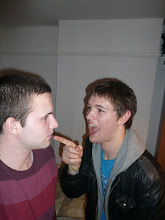
Over the Easter break I had a political discussion with my friend who was at the time on leave from the army. He’s been in the Army for 4 years now and will be trotting off to afghan in October. This fact sparked a discussion between me and him about Afghanistan (most of our discussions usually end up with the army, wars or politics). So as this debate of sorts became quite heated we decided to have a cup of tea, and it was lovely.
Whilst he told me about how ‘’our role over there is to bring peace and stability to the region, and to fight against terrorist threats’’ I said what a good idea it would be to jot down some notes about our discussion to formulate a meaningful and educated Blog. So I did. After my friend left my house I converted those notes into a brief and ‘to the point’ essay of sorts to best describe what our influence over there is all about. I thought it came out nicely. The information in there was from him, so I don’t know how accurate it is, but then again I do believe he knows what he’s talking about. So, here we go. Enjoy;
Firstly it is important to identify the two main components that exist within Afghanistan’s political system: the provisional Afghan government (headed by President Karzei) and the traditional Pashtun tribal Hierarchy.
Given that Afghanistan is an undeveloped state and most of the population have limited access to electricity, it is difficult for the Afghan government to have any affect beyond the limits of the capital: Karbul. The majority of Afghanistan’s population have a simpler and more traditional understanding of politics; centred on their ancient tribal Hierarchy. This tribal Hierarchy has its foundations in the ancient traditions of the pastun tribe: village and family elders provide a simple council system to resolve any inter-village or inter-family feuds, usually without hostilities. This system has proven affective for thousands of years, so the majority of Afghans have no interest in the national political system. This negative attitude towards a centralised government in Karbul makes NATO/ISAF’s job far more difficult: in Iraq NATO/ISAF where able to implement national change by manipulating a centralised political system in the capital, Baghdad. Afghanistan is far less developed as a country and there for far harder to affect at a national and political level! NATO/ISAF forces have implemented a ‘hearts and minds’ tactic in Afghanistan: win over the opinion of the people so they will accept our point of view and reject that of the insurgents, this may help the British Army and others in the short to medium term but it will not allow us to build a safe and secure country until they accept. Fin.

No comments:
Post a Comment